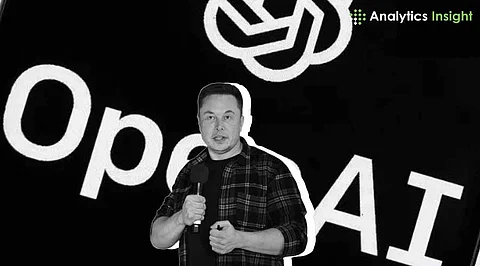

Elon Musk has made an ambitious move, offering a staggering $97.4 billion to acquire OpenAI, a company he co-founded, through a group of investors. This massive bid has sent shockwaves through the tech and AI communities, sparking a flurry of interest and speculation about the future of OpenAI.
The daring move has sparked pressing questions about the future of AI research and the implications for OpenAI's mission. Furthermore, it raises concerns about whether this offer poses a real threat to the company's autonomy and the stability of the entire AI ecosystem.
Musk started working with OpenAI in 2015 when he co-founded it with Sam Altman to make artificial intelligence work for humanity. Musk departed from the board in 2018, but he later criticized OpenAI for deviating from its non-profit base to a for-profit orientation, especially following its tie-up with Microsoft. His recent attempt to buy OpenAI's assets can be viewed as an effort to bring the company back on track to what he sees as its initial mission or maybe to use its technology for his own AI projects, such as xAI.
OpenAI's management, including CEO Sam Altman, has been quick to reject Musk's bid. Altman's tongue-in-cheek reply on X (formerly Twitter) was to offer to purchase Twitter back, highlighting the improbability of taking Musk's bid. The OpenAI board has also rejected the offer unanimously, pointing out that the company is not for sale and that the bid is viewed as an attempt by Musk to destabilize his rivals and not as a serious bid to further AI for the betterment of humankind.
Musk's proposal has some core questions regarding future AI research and development. Encouragingly, he could trigger innovation since his record on ventures like Tesla and SpaceX has been impressive. Negatively, however, there is a grave concern about the development of AI being under a single organization or person's helm, especially if it is as influential and affluent as Musk.
There is a fear that this would create a monopoly on AI technology, with one organization controlling the ethical use of AI, issues of privacy, and regulatory compliance. This consolidation of power would stifle the pluralistic, collaborative ethos that has characterized so much of the recent research on AI, which could limit the accessibility and openness of the field to a more extensive set of innovators.
Regulation of artificial intelligence is already a highly polarizing issue, with serious-minded people debating fervently over the best way to ensure AI is created to be secure, understandable, and serve all of humanity. Musk's proposal puts the conflict between technological development on a massive scale and the demand for ethical restraints. Critics also argue that under Musk, OpenAI would prioritize business over the public good after Musk's earlier criticism when OpenAI shifted to a for-profit entity.
Yet others view this bid as a positive force rather than a threat that could spur a rethinking of how AI firms ought to be organized. It can encourage more precise regulation of AI research, not permitting any group to control the pace and ethics of AI development. It can also energize debate over AI control, calling for more democratic institutions or at least firmer checks and balances on AI research organizations.
Elon Musk's $97.4 billion proposal for OpenAI isn't simply a cash bargain; it's a defining moment that can shape the fate of man-made intelligence. Regardless of whether this proposition will be seen as a danger, it will depend upon the response of the computer-based intelligence local area, controllers, and general society to this power move.
OpenAI's dismissal of the proposition could mean the demise of this specific story. However, the discussion it has incited about control, morals, and the eventual fate of simulated intelligence is just barely beginning. As computer-based intelligence continues to develop, saving it the power to support all will require watchfulness, exchange, and maybe reevaluating how we structure the organizations that produce it.
